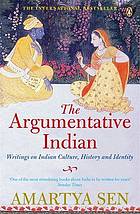Wayanad song © Kanavu music group founded by K.J. Baby
Travel photographs of Wayanad region and Kanavu centre © Ludwig Pesch
Kanavu is an alternative school/commune in Cheengode in Nadavayal village, Wayanad district, Kerala, India, set up by writer, activist and film director K. J. Baby. The school’s activities include performances of traditional plays and music, as well as martial arts (Kalarippayattu) training. During the year 2007 the Kanavu was registered with the students of kanavu as a trust, and they have taken over the charges.
Source: Kanavu – Wikipedia, the free encyclopedia
Address : http://en.wikipedia.org/wiki/Kanavu
Date Visited: Mon May 28 2012 14:01:52 GMT+0200 (CEST)
- Kanavu (The Dream) – video documentary by thirdeyefilms
- Future in the making – Kanavu Kerala Culture Club
Success stories that have made a world of difference for millions of schoolchildren:
Jointly creating storybooks in familiar languages for first-generation learners: Suchana, Pratham Books and StoryWeaver | More success stories >>
Search tips: More about Kanavu and Wayanad’s tribal cultural heritage | Use the search field seen below to find up-to-date information on the region’s Adivasi films, arts and related subjects
Up-to-date reports by Indian experts and journalists
Search tips
Combine the name of any particular state, language or region with that of any tribal (Adivasi) community.
Add keywords of special interest (health, nutrition endangered language, illegal mining, sacred grove); learn about the rights of Scheduled Tribes such as the “Forest Rights Act” (FRA); and the United Nations “Declaration on the Rights of Indigenous Peoples”, “Universal Declaration of Human Rights”, “women’s rights”, or “children’s right to education”.
Specify any other issue or news item you want to learn more about (biodiversity, bonded labour and human trafficking, climate change, ecology, economic development, ethnobotany, ethnomedicine, global warming, Himalayan tribe, hunter-gatherers in a particular region or state, prevention of rural poverty, water access).
For official figures include “scheduled tribe ST” along with a union state or region: e.g. “Chhattisgarh ST community”, “Scheduled tribe Tamil Nadu census”, “ST Kerala census”, “Particularly Vulnerable Tribal Group Jharkhand”, “PVTG Rajasthan”, “Adivasi ST Kerala”, “Adibasi ST West Bengal” etc.
In case the Google Custom Search window is not displayed here try the following: (1) toggle between “Reader” and regular viewing; (2) in your browser’s Security settings select “Enable JavaScript” | More tips >>
List of websites covered by this Google custom search engine
Academia.edu (platform for academics to share research papers) – www.academia.edu
Archive.org – https://archive.org
Centre for Science and Environment – https://www.cseindia.org
Current Conservation – https://www.currentconservation.org
Development and Cooperation (D+C) https://www.dandc.eu
Down To Earth (India) – www.downtoearth.org.in
India Environment Portal – www.indiaenvironmentportal.org.in
Harnessing Nature Magazine – https://harnessingnature.online
Mongabay-India – https://india.mongabay.com
M S Swaminathan Research Foundation – www.mssrf.org
Navdanya (protecting India’s biodiversity based food heritage) – https://navdanya.org
Third World Network (Penang, Malaysia) – https://twn.my
The Shola Trust (nature conservation in the Nilgiri region) – www.thesholatrust.org
Research the above issues with the help of Shodhganga: A reservoir of theses from universities all over India, made available under Open Access >>
Note: hyperlinks and quotes are meant for fact-checking and information purposes only | Disclaimer >>
“Kerala: Path we’ve taken favours privileged” – Commentary by K.S. Madhavan (University of Calicut) in Times of India >>

“The smart boy or clever girl who is deprived of the opportunity of schooling, or who goes to a school with dismal facilities (not to mention the high incidence of absentee teachers), not only loses the opportunities he or she could have had, but also adds to the massive waste of talent that is a characteristic of the life of our country.” – Nobel Awardee Amartya Sen in The Argumentative Indian (Penguin Books, 2005), p. 344
Tips: Tribal Children’s Right to Education | Find this and other books published in India | Video documentary on the Lifeworld of an Enlightened Villager | Related posts about Childhood | Childrens rights: UNICEF India | Safe search >>
View Tribal Cultural Heritage in India Foundation in a larger map